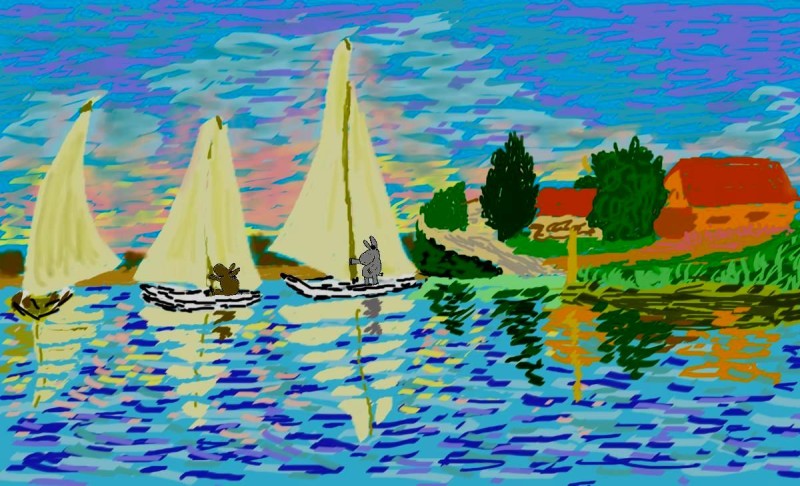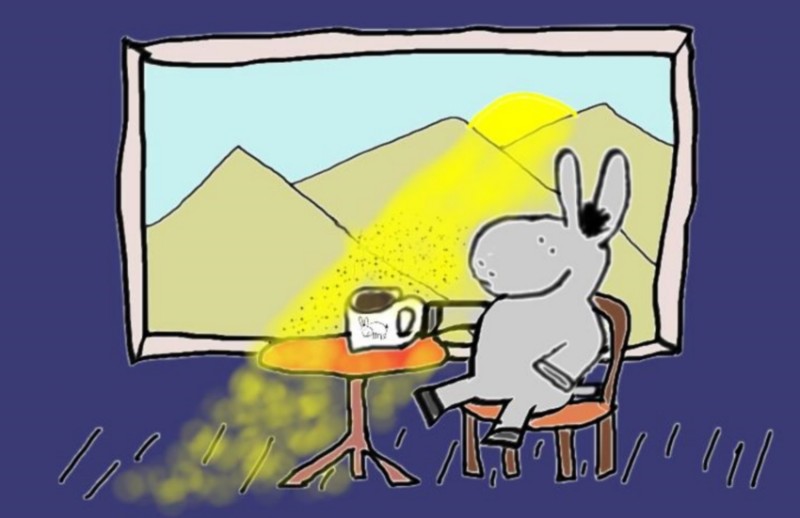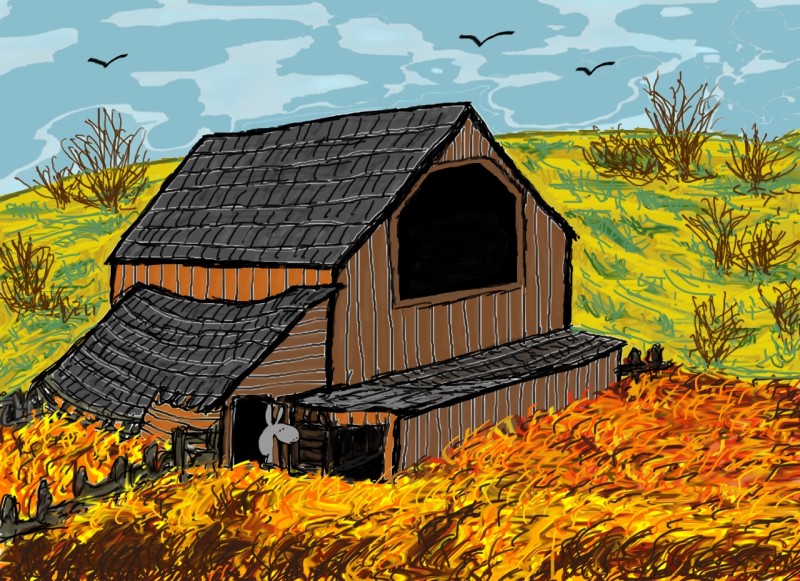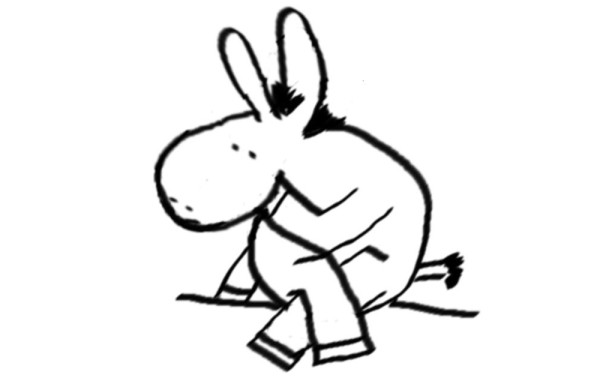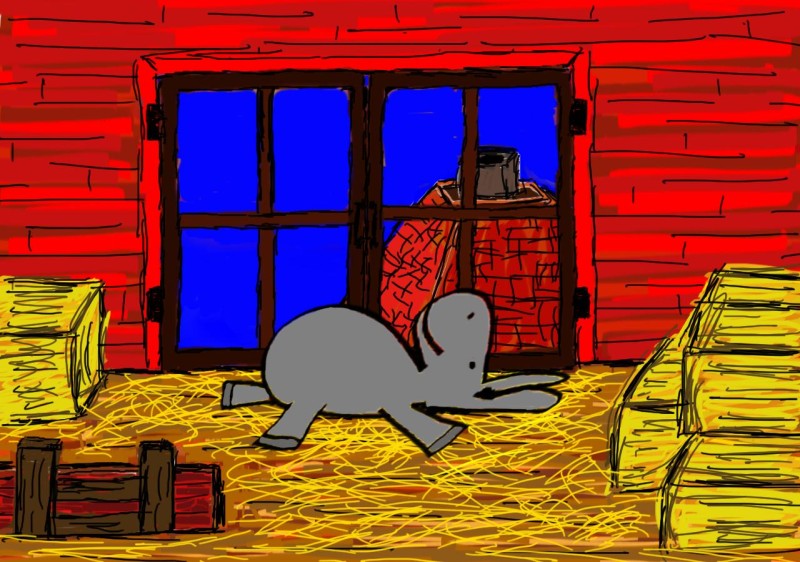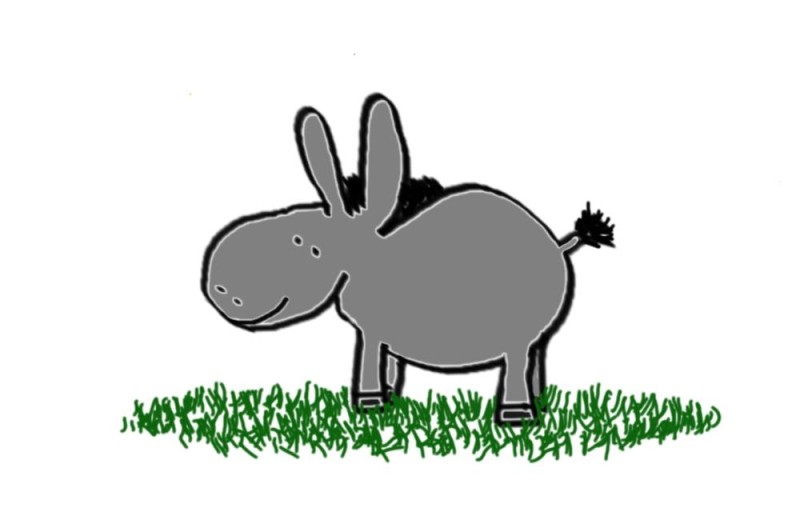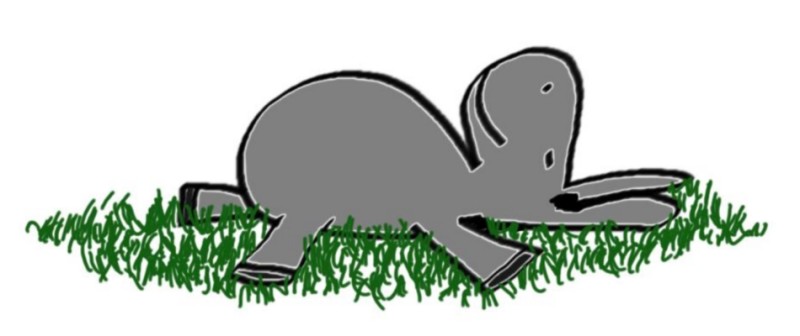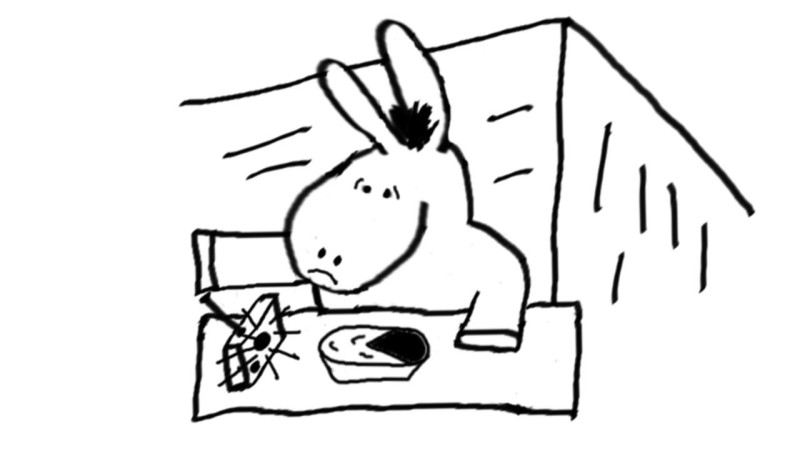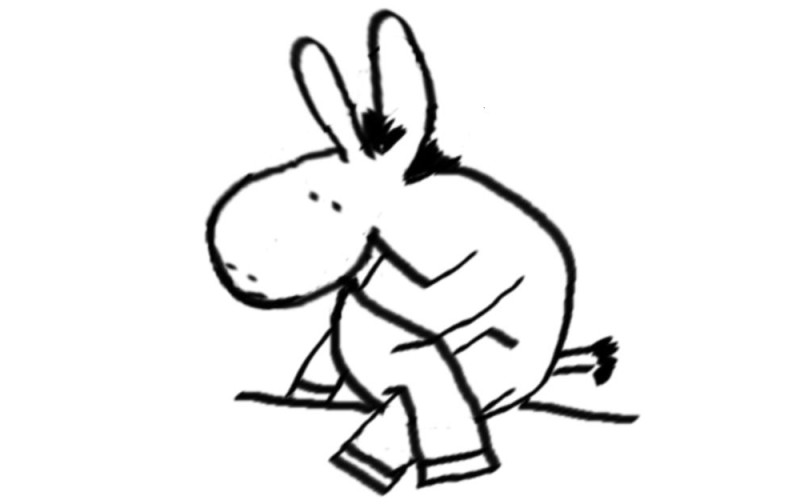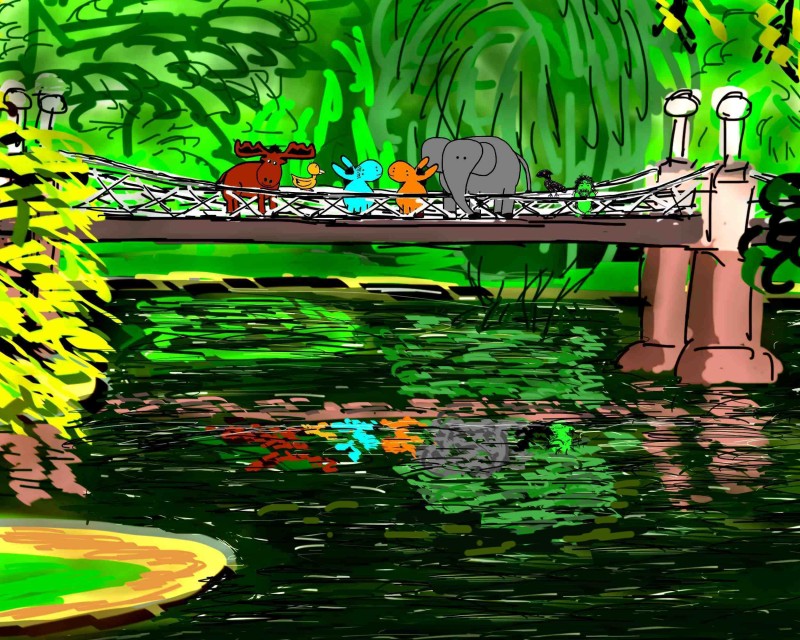Tag: drawings
“Blurtso is happy to be of use”
“Blurtso finds a barn”
“Blurtso considers fashion”
“Blurtso is comfortable where he is”
I wonder if I should get up? I’m very comfortable here, though it might be more comfortable somewhere else. I suppose I’m missing some exciting things. But it’s hard to miss things if you don’t know what they are. And if I did know what they were, and was doing them, I’d miss lying in this loft. I guess the only way to enjoy something… is not to think about what you’re missing.
“Blurtso decides to be lazy”
I think I will be lazy today, thought Blurtso, as he rose from a night of sound and restful sleep. Yes, that’s it. Today is a good day to be lazy. The sun was shining and the morning was cool and the grass was covered with dew. But how does one go about it, how does one go about being lazy? Let me see, he thought, what does a lazy person do? Most lazy people don’t move around a lot, so maybe if I don’t move around a lot I will be lazy. Blurtso stood in the grass with the dew on his hooves and didn’t move around a lot, and then he didn’t move around a lot some more, but after a while he felt he wasn’t being lazy, he just felt he wasn’t moving around a lot. Lazy people also seem to breathe slowly, he thought, so he began to breathe slowly, then he breathed slowly some more. Hmm, thought Blurtso, that still doesn’t feel like what I think being lazy is supposed to feel like. Lazy people also don’t do jobs that they’re supposed to do, so maybe I could invent a job I am supposed to do and then not do it. So Blurtso invented a job and then he didn’t do it, but he still didn’t feel lazy. In fact, after several more attempts Blurtso began to feel that this morning was turning into one of the busiest mornings of his life. What could the solution be, he thought. There must be some trick right in front of my nose. Blurtso thought and thought and thought, and then he thought and thought some more, but he couldn’t find the answer. I give up, he said with a snort, I don’t care if I ever learn to be lazy, and then he lay down in the grass and drifted off to sleep.
“Mr. Limbaugh blasts Blurtso on the air”
“Blurtso ventures a definition of happiness”
Happiness, thought Blurtso, sitting on his haunches with his boxing-glove nose supported on his front left hoof. I see the others, he thought, moving here and there, sniffing and peering, obeying and straying, leading and following with a need on the pillow, a need that stirs them in the morning and settles them in the night. And somehow the reward emerges, from the silence and babble, from above or below, a series of notes rising, repeating in the sound of hoof after hoof after hoof.
“Weohryant University” (XVII) – Where 101
Today’s question, said Harlan, is: “Where’s the door?”
The door? said Morton.
What door? said Frank.
There are lots of doors, said Chelsea.
You can’t swing a cat, said Frank, without hitting a door.
Maybe it’s a symbolic door, said Glouster.
An entrance door or an exit door? said Emma Lou.
Why do we want to find it? said Chelsea.
So we can get out, said Morton.
What if there’s no exit? said Frank.
Then we’ll have to stay here, said Morton, until we find it.
Or find an entrance, said Emma Lou.
An entrance? said Morton.
Yes, said Emma Lou, if we can’t get out, maybe we can get in.
Why do we want to go anywhere? said Morton.
That’s a good question, said Glouster.
To see what’s on the other side, said Chelsea.
The other side? said Morton.
Yes, said Chelsea, whenever I see a door, I wonder what’s on the other side.
Even when it says “do not enter”? said Morton.
Yes, said Chelsea, especially then.
Curiosity killed the cat, said Frank.
It did? said Morton.
If that’s true, said Chelsea, why arent’ there dead cats everywhere?
It’s an idiom, said Glouster.
An idiom? said Morton.
An idiom, said Glouster, is “a set expression of two or more words that means something other than the literal meaning of the individual words.”
Idioms, said Emma Lou, often have a basis in reality.
That’s true, said Frank, like the idiom, “There’s more than one way to skin a cat.”
Why would anyone want to skin a cat? said Morton.
It means, said Glouster, “There’s more than one way to do something.”
Or, “Who let the cat out of the bag,” said Frank.
Why would anyone put a cat in a bag? said Chelsea.
Lots of reasons, said Frank.
Like what? said Chelsea.
To stop cats, said Frank, from chasing birds.
Oh, said Chelsea.
I suppose birds aren’t fond of cats, said Morton.
No, said Frank.
What animals do donkeys dislike? said Emma Lou.
We like all animals, said Chelsea.
Except dogs, said Morton, when they’re nipping and yapping at your heels.
That’s true, said Chelsea, but some dogs are nice.
I don’t like crocodiles and alligators, said Glouster, they remind me of U-boats.
What’s a U-boat? said Chelsea.
A U-boat, said Glouster, is a submarine. The name comes from the anglicized version of the German word, “U-boot,” which comes from the word “Unterseeboot,” which means “under sea boat.” In World War II German U-boats plundered U.S. and Canadian merchant ships carrying supplies to allies in Western Europe.
I hate war, said Chelsea.
How does a submarine go under the sea, said Morton, without water leaking through the doors.
The doors, said Glouster, are air-tight. Nothing can get in or out.
There’s no exit? said Frank.
Not as long as the U-boat is underwater, said Glouster.
I don’t like to be trapped in closed spaces, said Frank.
Nor do I, said Glouster.
I don’t mind, said Emma Lou, as long as I can dig my way out.
“When one door closes,” said Glouster, “another one opens.”
Is that true? said Morton.
It’s an idiom, said Glouster, that means “When one opportunity is lost, another one presents itself.”
I’ve been in a barn, said Morton, that had two doors which were both closed.
What did you do? said Frank.
I stopped thinking about getting out, said Morton, and started thinking about something else.
You opened a door in your mind, said Emma Lou.
That’s right, said Morton.
Maybe that’s the door we should be looking for, said Frank.
The door in our mind? said Morton.
Yes, said Emma Lou, the door to imagination, to new perspectives, possibilities, and opinions.
I use that door all the time, said Chelsea.
It’s a very nice door, said Morton.
And it’s almost always open, said Emma Lou.
Almost? said Chelsea.
Yes, said Emma Lou, sometimes it’s closed by habits and prejudices we’ve adopted from those around us.
A Scottish journalist named Charles Mackay, said Glouster, wrote a book called, Extraordinary Popular Delusions and the Madness of Crowds.
What’s it about? said Chelsea.
It’s a book about crowd psychology, said Glouster, and how individual delusion can become mass delusion.
Mass delusion, said Emma Lou, is called “reality.”
How can you tell, said Morton, if what you believe is a delusion?
That’s a good question, said Chelsea.
What’s the answer? said Frank.
I don’t know, said Morton, maybe that’s the door we should be looking for.
